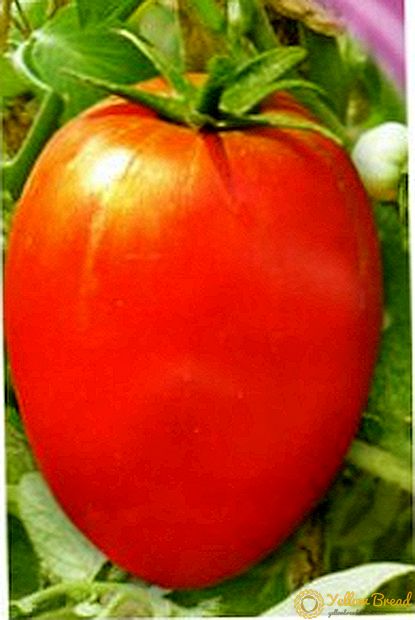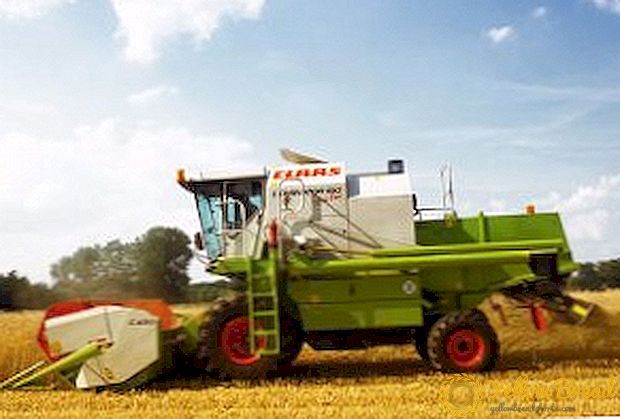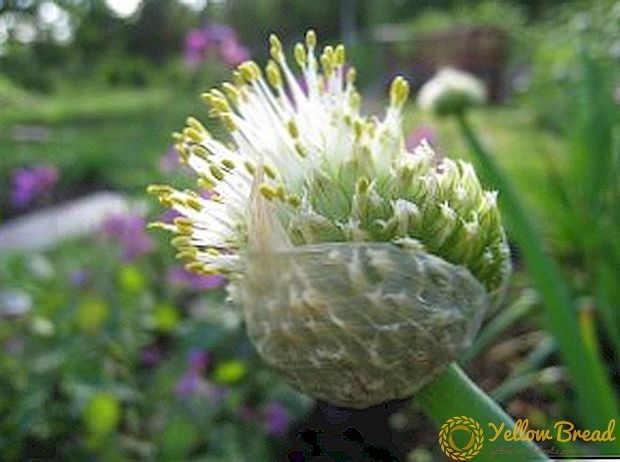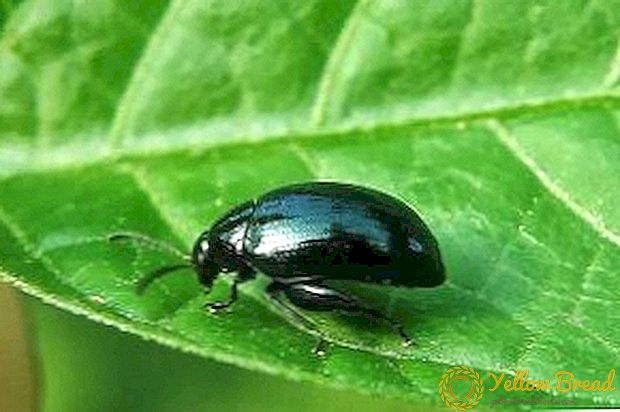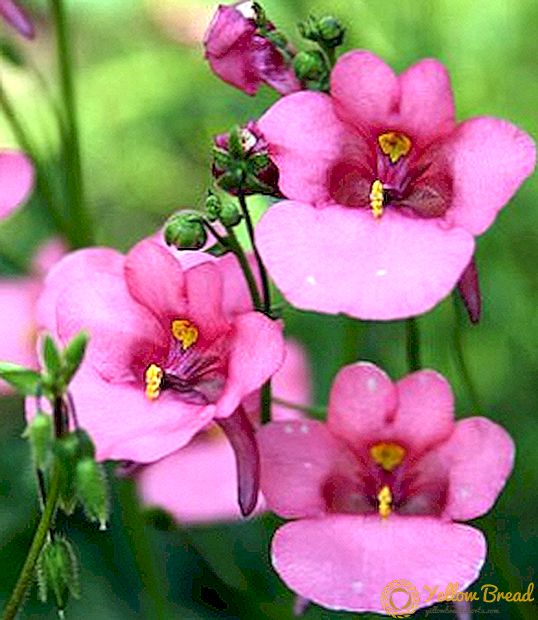 In nature, a huge number of edible and inedible mushrooms grows. Edible can be eaten, while not risking health. They differ from the inedible form, color and structure of the hymenophore. Consider what are the mushrooms, and provide a photo with the names.
In nature, a huge number of edible and inedible mushrooms grows. Edible can be eaten, while not risking health. They differ from the inedible form, color and structure of the hymenophore. Consider what are the mushrooms, and provide a photo with the names.
- Maslata
- Milk
- Krasnushki
- Mohoviki
- Honey agaric
- Ryzhiki
- Aspen mushrooms
- White mushrooms
- Champignon
- Mlechniki
- Russula
- Chanterelles
Maslata
One of the most famous edible mushrooms is boletus. These are tubular fungi, which belong to the genus of bolt. Recognize them by oily and slippery cap.
It can be both flat and convex. Peel is easily removed. Under the cap there are bedspreads that form a ring. This mushroom has more than 40 representatives.  Grows in Russia, Australia, Africa, in places with a temperate climate. We have the most common butterdish ordinary or autumn.
Grows in Russia, Australia, Africa, in places with a temperate climate. We have the most common butterdish ordinary or autumn.
Milk
Milk - family russula. The cap is very dense, its diameter can reach 20 cm. At first it is flat-convex, and then acquires a funnel-shaped shape with a curled edge inside.  The peel is wet, mucous, may be yellowish or milky white. Leg gland hollow, cylindrical and smooth, up to 7 cm and up to 5 cm in diameter. It sometimes has yellow spots or pits. This mushroom has a thick, white flesh, with a characteristic smell, similar to the smell of fruit.
The peel is wet, mucous, may be yellowish or milky white. Leg gland hollow, cylindrical and smooth, up to 7 cm and up to 5 cm in diameter. It sometimes has yellow spots or pits. This mushroom has a thick, white flesh, with a characteristic smell, similar to the smell of fruit.
Krasnushki
This type of mushroom, like milk mushrooms, belongs to the Russula family. The hat of the rubella is dense, but fragile. Initially convex, and then acquires a flat shape and slightly indented.  It can have a diameter of up to 7 cm. Smooth or slightly wrinkled matte skin has a brown color. The fragile flesh has an unpleasant smell that resembles the smell of rubber or a crushed bug.
It can have a diameter of up to 7 cm. Smooth or slightly wrinkled matte skin has a brown color. The fragile flesh has an unpleasant smell that resembles the smell of rubber or a crushed bug.
The taste is bitter.If it is notched, water-white milky juice will stand out. The taste of the mushroom is sweet at first, but then gives off bitterness.
The rubella plate is frequent and narrow. They are white, but with age they change to light brown with a pink tinge. This mushroom has a cylindrical and tapered leg at the base, having a diameter of 1.5 cm and a height of up to 7 cm. There are longitudinal fuzzy stripes on it.
Mohoviki
This type of tubular fungi belongs to the family of boletes. The name of these mushrooms appeared due to frequent growth in moss. They have a dry, slightly velvety cap.
And in some species, it is sticky in wet weather. When the fungus is aging, cracks appear on the skin. In Mokhovikov yellow, white or red flesh, sometimes turning blue in the cut.  The tubular hymenophore, which descends along the stem, may be yellow or red, sometimes greenish. The tubules have wide pores. The leg can be both smooth and wrinkled. Volvo and ring in this species of fungi are absent.
The tubular hymenophore, which descends along the stem, may be yellow or red, sometimes greenish. The tubules have wide pores. The leg can be both smooth and wrinkled. Volvo and ring in this species of fungi are absent.
Honey agaric
Honey mushrooms belong to the family of fizalacria.The cap has a diameter of 3-10 cm. At first it is convex, and then it becomes flat and has wavy edges. Skin color can be different: from brown to greenish. In the center the color is darker.  On the surface there may be rare light scales, which sometimes disappear with age. Young hats have thick, whitish flesh, and legs are fibrous.
On the surface there may be rare light scales, which sometimes disappear with age. Young hats have thick, whitish flesh, and legs are fibrous.
In young mushrooms, they are white or beige. When the fungus matures, they change color to pink-brown. Sometimes brown spots appear on them. The legs have golden yellow-brown color, and the lower part is brown-brown. Their diameter is about 2 cm, and length - up to 10 cm. On legs, as well as on caps, there may be scales. Mushrooms often grow together at the base of the legs.
Ryzhiki
Another type of mushroom belongs to the Russula family - mushrooms. At first they have a convex cap, and then it takes on a funnel-shaped shape with wrapped (later straightening) edges.  In the center sometimes there is a small bump.The surface is smooth and shiny, has an orange color with darker spots and rings. The diameter of the cap can reach 18 cm.
In the center sometimes there is a small bump.The surface is smooth and shiny, has an orange color with darker spots and rings. The diameter of the cap can reach 18 cm.
The legs have the same color as the cap, or slightly lighter. The diameter of the legs - up to 2 cm, and the height can reach 7 cm. It has a cylindrical shape, hollow, tapers to the base.
On the surface of small pits. The plates of this mushroom are thin, frequent, forked. They go down a little bit on the leg. They have an orange-red color and turn green when pressed. The pulp has a yellow-orange color, it is dense. The orange and thick milky juice has a fruity flavor. It is green in the air.
Aspen mushrooms
Boletus from the family of boletes refers to autumn mushrooms. It has a convex cap, easily separated from the leg. Its diameter can be up to 15 cm. 
The young mushroom has a hemispherical cap, it is pressed edge against the leg. The skin is velvety red, orange or brownish. Dense pulp with age turns into soft.
In the leg pulp fibrous.On a cut of white color, and below legs bluish. The smell and taste are not pronounced.
The legs of the aspen are as thick as 5 cm, and their height is up to 15 cm. They are solid, generally expanding downwards. Hymenophore is white and free, later becoming gray with an olive or yellow shade. When touched, the porous surface darkens.
White mushrooms
White fungus belongs to the genus Boletus. In an adult mushroom, the cap is convex; the diameter can reach up to 30 cm. It has a smooth surface or wrinkled surface, which cracks in dry weather.
The skin can be from reddish brown to white. But with age it gets dark and is not separated from the pulp. Usually the color is uneven, the edges are bright.  The flesh is juicy, strong. In young white mushrooms, it is white, but later becomes yellow. The leg of this mushroom has a height of 8-25 cm, and a thickness of approximately 7 cm.
The flesh is juicy, strong. In young white mushrooms, it is white, but later becomes yellow. The leg of this mushroom has a height of 8-25 cm, and a thickness of approximately 7 cm.
Champignon
This type of mushroom belongs to the family of champignon and has a dense rounded cap, the diameter of which can be up to 15 cm. It has a white color, sometimes brownish, the cap is smooth or with small scales.  Himenofor free, initially white, then darkens and becomes brown. The flesh is white shades.
Himenofor free, initially white, then darkens and becomes brown. The flesh is white shades.
Mlechniki
Edible mushrooms Mlechniki belong to the Russula family. Young lacteal mucous and bulging caps, which later become indented.  It has the color of all shades of purple or brownish. Hymenophorus down the leg, frequent. Young mushrooms have white color plates, later they darken.
It has the color of all shades of purple or brownish. Hymenophorus down the leg, frequent. Young mushrooms have white color plates, later they darken.
Damage becomes gray-green. The pulp is white. It is strong at first, later loose. The leg is cylindrical and flat, with age it becomes hollow. It has a length of about 10 cm. The colors are the same as the cap.
Russula
These mushrooms belong to the Russula family.This type of mushroom has a hemispherical cap or bell-shaped. Later it becomes flat or funnel-shaped.  The edge can be wrapped or straight, with stripes. The skin is dry, can be matte or shiny. Himenofor adherent. May be free or down the stem. The flesh of these mushrooms is fragile and spongy, whitish.
The edge can be wrapped or straight, with stripes. The skin is dry, can be matte or shiny. Himenofor adherent. May be free or down the stem. The flesh of these mushrooms is fragile and spongy, whitish.
With age, can change color to brown, gray, black and red. The legs have a cylindrical shape. It is even, but sometimes it can be thickened or pointed at the end.
Chanterelles
These mushrooms belong to the genus of chanterelles. The diameter of the cap reaches 12 cm. Basically, it has a wavy and wrapped edge. The cap is flat and depressed, and in adult mushrooms it may be funnel-shaped. Its surface is smooth.  The skin is difficult to separate from the cap. The flesh is very dense, yellow at the edges, and whitish in the center. She has a sour taste, and the smell reminds dried fruit. If you press on the pulp, it may turn a little red.
The skin is difficult to separate from the cap. The flesh is very dense, yellow at the edges, and whitish in the center. She has a sour taste, and the smell reminds dried fruit. If you press on the pulp, it may turn a little red.
The leg is about 7 cm long and 3 cm thick. It is fused together with a cap and has the same color. Hymenophore in chanterelles is folded and consists of wavy folds that descend strongly along the stem.
Now you know what types of edible mushrooms are, their description and you saw in the photo. Thanks to this, it will be easy to choose the right tasty mushroom without making a mistake.

